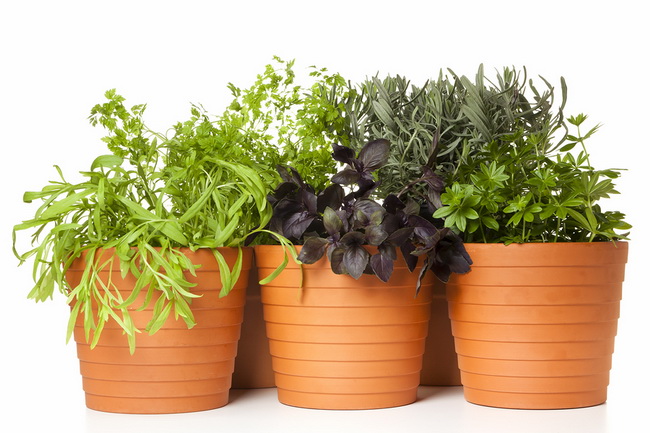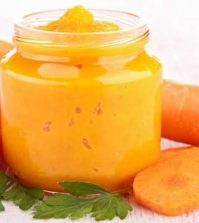- Make It Yourself Lavender Heart-Shaped Bath Bombs!
- 20 Things You Never Knew About “Down There”
- 12 Best Foods For Those Suffering From Arthritis Pain
- 12 Personal Hygiene Mistakes Almost Everyone Makes (Mom Never Told You About #4!)
- 15 Medicinal Plants And Herbs From The Cherokee People
- 12 Mind-Blowing Benefits Of Drinking Coconut Water During Pregnancy
- 12 Outstanding Winter Foods That Won’t Fatten You Up Like A Christmas Turkey
15 of the Best Herbs Ever for Eczema Relief

Photo credit: bigstock.com
Although mainstream media virtually ignores herbs and other natural treatments for any medical condition, the World Health Organization says that about 80 percent of the world population uses medicinal plants to treat all kinds of health problems, including skin problems such as eczema. Many pharmaceutical companies use various herbs as a base for their drugs, even though they won’t tell you that.
Eczema is an inflammatory disease of the skin that is often found on the scalp, neck, wrists, elbows, and knees, but it can occur anywhere on the body. Eczema can be identified by its extremely dry patches of itchy, crusty skin. In extreme cases, eczema can even bleed or ooze a watery discharge. In addition to the itchy skin some people say that they feel a stinging or pins and needles type of sensation or that the area breaks out in pimples.
Although the exact cause of eczema is unknown some people believe that it results from an allergic reaction. Although there are some over the counter remedies that are designed to help ease the symptoms, they can be filled with toxic chemicals and be quite expensive.
Many people find relief from their eczema through herbs from Mother Nature. The following list of herbs has been proven to offer effective relief from the pain and itching.
1. Calendula
Sometimes referred to as marigold, calendula is super effective when it comes to fighting dermatitis or eczema. You can find creams and ointments that contain calendula in many drug stores or natural remedies stores. Alternately, you can also apply moistened calendula tea bags to the affected area or, remove the leaves from the tea bags and apply it directly to the affected area and put a bandage or dressing over the moist leaves to hold them in place.
2. Pentaherb
Actually, this isn’t a single herb but a combination of 5 herbs in a capsule form. Researchers have created this formula which contains the root bark of peony trees, Japanese honeysuckle, peppermint, the root of atractylodes herb as well as bark from the Amur cork tree. In a 2007 study done in China found that subjects who took pentaherb had a reduced need for conventional products such as steroid creams and generally had an improved quality of life. Why these herbs? Evidence suggests that all of these herbs contain anti-inflammatory compounds which help to reduce eczema.
3. Witch Hazel
You might think witch hazel is only for acne or for use as an astringent, but witch hazel has numerous benefits for the skin besides stopping pimples. Recent studies show that this old fashioned remedy works just as well as other treatments for eczema. One study involved 22 subjects with eczema. On one arm, subjects used a standardized witch hazel salve and a non-steroidal anti-inflammatory cream on the other. After 3 weeks, researchers found that both arms had improvements in redness, itching, and scaling. Studies like these show that this age-old remedy works as effectively as many pharmaceuticals.
4. Burdock
The leaves from the burdock plant have been found to help stop the scaling that it often found in those with eczema. Some say that burdock seeds work better than the leaves. If you should decide to use the seeds, mix them with some crushed garlic and glycerin for best results. Many people drink burdock root tea as a means of cleansing the blood. Scientists have found that burdock root not only detoxifies the blood, but improves blood circulation to the surface of the skin as well, which can improve the texture and quality of the skin. Burdock root also has antibiotic and antioxidant compounds. You might want to try making a poultice out of the leaves or seeds, and then drinking a few cups of burdock root tea for optimal results.
5. St. John’s Wort
This is another herb that is often used for another purpose, in this case for depression, but often helps in other areas. When used topically, St. John’s Wort is an effective remedy for eczema. Researchers in one study compared a cream that had St. John’s Wort extract to a placebo cream that did not contain any herbal ingredients in 21 subjects who had mild to moderate eczema. The participants were told to put the cream on one part of the body that had eczema, and the St. John’s Wort cream on another part of the body that also had eczema. Some people saw a small amount of improvement with the placebo, but the cream that contained St. John’s Wort far exceeded the results achieved with the placebo.
Continue to Page 2

































